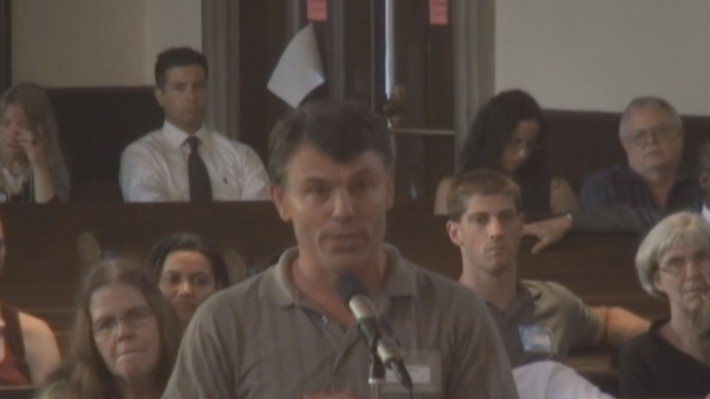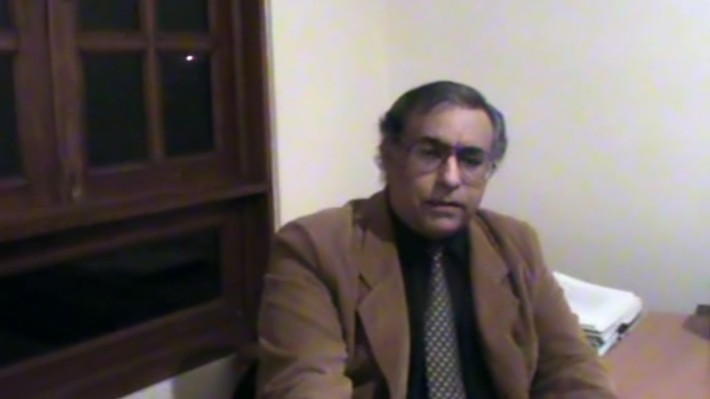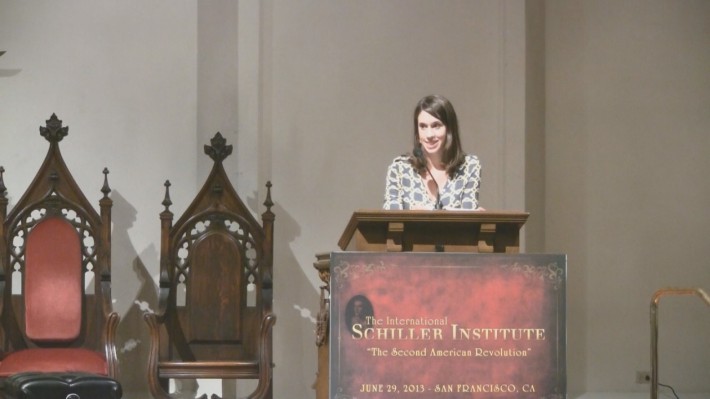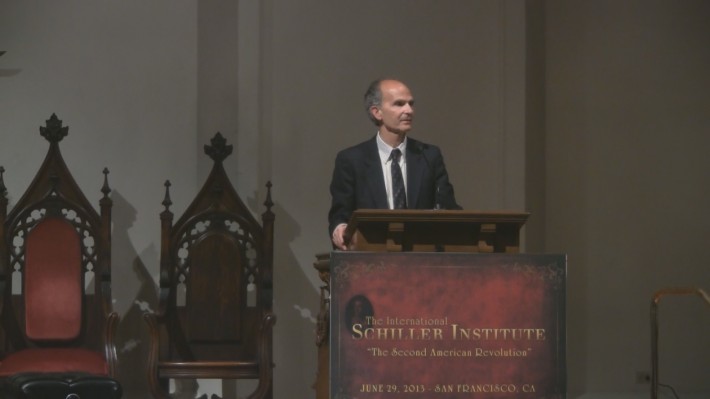Dear friends,
I would like to thank you very much for the opportunity you are giving me to address you at this conference. I hope that your proceedings will bear good fruit and offer alternative insights in these grave times. Speaking for the people of Cyprus, I believe that different perspectives and alternative measures are desperately needed if the world is to be saved from this enforced debtocracy.
I will be short and only touch on key components of this newfound Cypriot Economic Crisis, as my small contribution to your proceedings, offering our green perspective to the issue in the process.
We believe that the latest developments on the economic front in Cyprus are directly linked to the general economic recession plaguing this new century, the rapid political development of geostrategical importance in the area and internal politics on the island. These key elements overlap each other, muddying the waters in the process and offering little clarity and little hope of rational decision being made to overcome the problems that have arisen.
The previous government refused to deal with the storm clouds gathering since 2008, and thus was unprepared to deal with its exclusion from the international financial markets. But even then, no strategies were laid out to deal with the overwhelming deficit and the ever-increasing debt accumulated both by the government but also by private enterprises and especially the banking sector. The President of the Republic of Cyprus and the Governor of the Cyprus Central Bank seemed to be locked in an everlasting dispute ((Mr Athanasios Orphanides was appointed as Governor of the Cyprus Central Bank by the previous president of the Republic, and president Christofias (AKEL, communist party) highly distrusted him, creating a lack of flow of information between the two institutions.)), and did not act together to try and bring about solutions to the impending economic crisis. It came as no surprise when the Governor’s term of office was not renewed and a new governor, Mr Panikos Demetriades was appointed. But even then it seemed that no solutions were being put forward to deal with the banking system loopholes (( One of the reasons for the bank failure of one of the two systemic Cypriot banks was its merger with a Greek bank and the undertaking of the old debts and bad portfolios, an act that was not sanctioned by the Cyprus Central Bank but which could not be prevented due to loopholes in the legislation.)) and the mounting problems that arose with the haircut imposed on Greek bonds, with the transfer of cash flow from Cypriot banks to Greek banks and the increasing debt our two systemic banks were accumulating through the ELA (European Liquidity Assistance).
While all this was happening, Cypriot politicians were involved in election campaigning, in trying to shift blame from one to the other, while storm clouds were gathering and our banking system was reaching its limits.
In January 2013 the first rumours of an imminent bail in started to circulate, creating an outflow of deposits from some of the biggest depositors in banks. As soon as the presidential elections were over, these rumours started to circulate again, with more certainty this time, forcing the Central Bank of Cyprus and the government to issue statements that such a measure would be unacceptable by our side and anyway preposterous since it would shatter the very foundations of the banking system. It seems that they were wrong since on the 16th of March 2013 the Eurozone leaders and the IMF jointly asked for a bailin from all depositors of every single banking institution on the island, agreeing on a differentiated percentage for those with deposits over and under €100.000.
With an imminent bank run foreseen, the government returned to Cyprus and demanded that parliament sit in an extraordinary plenary session and pass the necessary legislation the very next day. Political parties reacted, pushed the plenary session to Tuesday the 19th and voted against the troika decision. Banks were on forced holiday and remained closed for the whole week, while the political leadership of the island scrambled to make the best out of a bad decision that had created a tornado of repercussions despite its rejection. Finally, the parliament voted in favour of resolving the biggest systemic bank of the island (Marfin Laiki) and transferring its “good-bank” assets to the 2nd systemic bank (Bank of Cyprus) in an effort to at least save some assets over €100.000 (deposits over €100.000 in Marfin Laiki will remain locked until the “bad bank” assets are liquidated and perhaps receive a fraction back, estimated at anything between 5-10%). Deposits in other bank were not touched but uninsured deposits (over €100.000) in the Bank of Cyprus remain frozen until the percentage of the haircut they would receive is calculated. At the same time, restrictions in money transfers, both within the country and towards foreign countries) were immediately imposed, in an effort to avoid bank runs and further crisis. These restrictions remain in place even today, a month after these events, creating a standstill in local industrial and commercial activities.
The bombshell the Troika threw at our feet, described as shock therapy by some and deterrence action by others, has utterly destroyed our banking and financial operations, forcing bankruptcy on not only banking institutions but also on other private enterprises. With SME’s accounting for 95% of Cyprus’ economic mix (mostly family-owned businesses) and forecasts estimating a 60% bankruptcy rate of registered Cypriot companies, it is clear that Cypriots will suffer huge hardships and negative economic development rates for many years to come.
The Cyprus Green Party has been trying to address these issues for many years now, promoting sustainable alternative models of development and restraint in government expenditures. Our Green New Deal proposals were not taken up and an unhealthy business activity mix continued to dominate our economic model: banking services, tourism and construction. An overdependence on imports was created and, with no funds funnelled towards enhancing our meagre agricultural and industrial sector, or the introduction of new services in the mix (research and development, shipping, renewable energy), it was only a matter of time before the whole system would implode.
The question is, how did things get this far? Was it just the lack of discipline from Cypriots themselves or were other decision-making processes maintaining this catastrophic course? Our estimation is that, despite the inherent flaws of our existing structures, the situation was under control and, with a little assistance the course could be altered and a new, sustainable and balanced economic model be put in place. The newly elected government had already displayed its commitment to making all the necessary changes, with the expressed collaboration of the majority of political parties on the island, and hard decisions had already been made from the previous year, even though a Memorandum of Understanding (MOU) was never signed. What was the key element that lead the troika to decide that Cyprus would be the perfect guinea pig for their next step from haircutting government bonds, namely the bailing of banks from its own depositors? Our estimate is that the lack of direct impact on other eurozone economies (due to its small size and lack of systemic relations), the relative easiness with which institutional and legislation changes could be imposed and the general control that could be achieved in such a small economy, all contributed towards the decision made. But overall, we believe that the ultimate goal was to achieve complete political control over this small nation, that found itself tangled in greater geopolitical developments in the area, that was about to tap into vast quantities of natural gas that the EU desperately needs to ensure will remain under its control and of no other, and that was proving extremely stubborn in taking the hint from its fellow member-states in regards to what their foreign policy should be, especially regarding Turkey’s membership bid to the EU. These facts cannot be disregarded easily when one considers the huge repercussions this single blow to our economy (by our fellow peers no less) will have on our internal and international relations. One shudders when considering what other decision are in store for us once an MOU is signed and ratified by the Eurozone countries…
The Cyprus Green Party considers the MOU to be a very bad deal that should be avoided at all costs. Imminent bankruptcy will always be on the other side of the corner and the lack of control over our decision making processes as nation are a much bigger sacrifice than surviving under austerity measures and depression until regular economic activity is restored. It is our belief that the Cypriots are a hard working people that will find a way to reconstruct their economy and country, just as they did in 1974 after the invasion of the island by Turkey led to her losing not only 35% of their territory, but also, and perhaps more importantly, 65% of its productive agriculture land, 70% of its mineral wealth, 70% of its industrial infrastructure and 80% of its tourist infrastructure. This time around, we will do everything in our power to create sustainable and balanced economic activity in the hope of creating a model country that will implement in reality all the Green New Deal processes that can make a country and nation stable and wealthy on its own right and for a long period of time.
Spanish astrophysicist Amaya Moro-Martin has been outspoken in defense of scientific research and development in Spain, against the budget cuts which threaten its existence. As she was unfortunately unable to attend this conference in person, Amaya sent the following message.
Moro-Martin’s research ranges from solar and extra-solar planetary systems, to the formation of circumstellar disks. She serves on the governing boards of Euroscience and the Royal Spanish Society for Physics, and is a founder and the spokesperson for Investigación Digna —Dignified Research— a grassroots science policy lobby at the Spanish Congress and Senate which played a active role in sponsoring the dramatic “Open Letter for Spanish Science” in March 2012, warning that budget cuts threatened to bring about a “collapse” of the Spanish research system, which was quickly signed by over 46,000 Spaniards and foreign scientists. As she wrote in an article in El Pais in November 2012: for the first time, the scientific community has united to stop the irreversible takedown of a scientific and technological system which took decades to build. Our objective is not to defend the status quo, she wrote, but to build a system based on the understanding that R&D is not an accessory, but the motor of the economic change required to get out of the crisis.
I am crossing the Sonoran and Mohave deserts of the Southwestern US. Their native inhabitants live in Indian reservations, confined to regions with limited natural resources. A fictitious independence allows them to modify some laws so that casinos and the sell of tobacco -activities strongly regulated in the rest of the US- are the basis of their precarious economy. I think of Eurovegas, the macro complex of casinos and golf courses that Las Vegas Sands wants to build near Madrid. To please that corporation, the Spanish government plans to undermine immigrant and labor laws, modify tobacco regulations and offer generous tax breaks. I think of the biology PhD, former employee of the Spanish National Research Council, to whom the Bureau of Labor in Spain recently assigned a course to become a croupier. How ironic that the destiny of the people of this land, that once belong to New Spain, and our destiny, that of the old Spain, may end up converging in a slot machine.
My daughter sleeps in the car seat next to me. We have been traveling since she was ten weeks. By the time we go back to Spain she will have spent half of her life traveling. These trips are not for pleasure. I am a scientist and I am looking for a job. I work at the Spanish National Research Council and my supposedly “tenure-track” contract ends in few months. There are thousands of researchers like me. But we are invisible. The recent words of the Spanish ruling-party congressman in charge of R&D still resonate in my head: “there is no brain drain, it is no more than an unjustified cliché.” I am thinking about the last of our many meetings at the Spanish Congress with him and the “young” scientists who were present. Diego just moved to Australia. Andy has an offer in Brazil. I am applying for jobs in North America. It would not be the first time I leave my country. I lived in the US for eleven years but this time my departure would not be triggered by curiosity. I am running away. I think about giving this congressman a call from the next gas station; no, better from the next roadside casino. The Spanish National Research Council just lost 1,208 science jobs in the last 15 months -205 in January and February 2013- and the only measure adopted by the Spanish government to stop this brain drain is to offer them courses to become croupiers. This is no brain drain, it is brain annihilation.
There are too many scientists and not enough croupiers. In a June 2012 letter to Nature, the Spanish Secretary of State stated that “the Spanish R&D system is not large enough to justify paying as many researchers as it currently does”. Retiring scientists are not being replaced and the number of new science permanent positions released (at all levels, and for all research centers in Spain) has been slashed steadily from 681 in 2007 to 15 in 2013. But the latest indicators available (corresponding to 2009) show that in Spain the percentage of the active population working in R&D is 9.6 (per thousand), below the EU-27 average (10.4 per thousand) and far from leading EU countries like Germany (12.7 per thousand), Sweden (15.4 per thousand) and Finland (20.8 per thousand).
But their denial goes beyond the brain drain. In a January 2013 letter from the Spanish Presidency we were reassured that the Spanish government is “firmly convinced of the importance of research and innovation in the economical and social development of Spain” (…) and that “despite current difficulties, a considerable effort has been made to maintain the investment in R&D, trusting the potential of our researchers (…)”. Luis de Guindos, the Minister of Economy, now in charge of R&D after the Ministry of Science was dismantled by the new government, went even further affirming that the R&D budget was not only maintained but it was increased by 5% in 2013. Compared to the preceding year, R&D spending has been slashed by 14.5% (2010), 5.1% (2011), 22.2% (2012) and 13.7% (2013), accumulating a loss of approximately 40% since 2009. Where he is getting that 5% increase for 2013 is a mystery. Interestingly, he was a top official of Lehman Brothers at the time it went bankrupt. To pretend that research can survive the standstill imposed by these drastic budget cuts is like asking someone to stop breathing for an hour. In spite of all this, policy makers keep talking about the need to shift to a knowledge-based economy. Pure rhetoric. At best we will achieve a borrowed-knowledge economy with little domestic know-how. They are shredding our children’s future into casino chips. Literally. The tax breaks under considerations for Las Vegas Sands may be of the order of the entire yearly budget for R&D grants.
This negation of reality is the context of the newly approved Spanish Strategy for Science, Technology and Innovation, a document does not mention the drastic budget cuts in R&D of the last few years, makes no assessment of their impact and does not suggest any measures to stop the brain annihilation. It does not even specify the human and financial resources that will be available for R&D in the short and medium -term. The document tell us an old fairy tale: to reach a R&D investment of 2% of GDP in 2020, ignoring that 2% was the government’s goal for 2010, that the European Commission agreed on 3%, and that the average in the EU-27 today is just over 2%. In other words, cheerfully delaying the convergence with Europe by more than a decade.
But this so-called Strategy is much more than uninformed wishful thinking. Maybe following directives from the Chicago School of Economics, it establishes the transfer of resources from basic research in the public sector to innovation in the private sector. Which private sector? The one that did not invest in R&D even when the economy was booming? And how would they innovate? Basic research constitutes the building blocks of all scientific progress and this magical word, innovation, will go nowhere without the scientific progress achieved by the public sector. And more fundamentally, the Spanish government should take into consideration what is valued by our society, not only by the stock market. How to put a price tag to the search for life in other planets or to the cure of a rare illness?
Another buzz word is excellence. Scarce resources, the government asserts, will make excellence flourish, as if research followed the Darwinian rule of survival of the fittest. But like evolution research is not predictable. By whom and using what standards can excellence be identified? Would they have foreseen the impact of the serendipitous discovery of penicillin? As species, research will not be able to flourish in a rapidly changing environment without a diversified portfolio, in particularly, when the best trained “young” scientists—in their late 30s and 40s—are leaving the country (or becoming croupiers).
We have put a science lobby together representing the entire scientific community, including the confederation of scientific societies, the conference of Spanish university chancellors, the two major trade unions and the federation of young researchers. Has the government listened to our warnings regarding the irreversible dismantling of a research system that has taken four decades to build? Absolutely not.
My baby daughter is waking up. I raise my eyes from the laptop and I see a desolate landscape. A billboard announces a nearby casino.




















